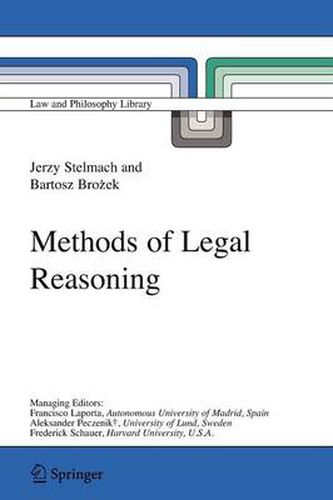Readings Newsletter
Become a Readings Member to make your shopping experience even easier.
Sign in or sign up for free!
You’re not far away from qualifying for FREE standard shipping within Australia
You’ve qualified for FREE standard shipping within Australia
The cart is loading…






This title is printed to order. This book may have been self-published. If so, we cannot guarantee the quality of the content. In the main most books will have gone through the editing process however some may not. We therefore suggest that you be aware of this before ordering this book. If in doubt check either the author or publisher’s details as we are unable to accept any returns unless they are faulty. Please contact us if you have any questions.
Methods of Legal Reasoning describes and criticizes four methods used in legal practice, legal dogmatics and legal theory: logic, analysis, argumentation and hermeneutics. The book takes the unusual approach of discussing in a single study four different, sometimes competing concepts of legal method. Sketched this way, the panorama allows the reader to reflect deeply on questions concerning the methodological conditioning of legal science and the existence of a unique, specific legal method.
$9.00 standard shipping within Australia
FREE standard shipping within Australia for orders over $100.00
Express & International shipping calculated at checkout
This title is printed to order. This book may have been self-published. If so, we cannot guarantee the quality of the content. In the main most books will have gone through the editing process however some may not. We therefore suggest that you be aware of this before ordering this book. If in doubt check either the author or publisher’s details as we are unable to accept any returns unless they are faulty. Please contact us if you have any questions.
Methods of Legal Reasoning describes and criticizes four methods used in legal practice, legal dogmatics and legal theory: logic, analysis, argumentation and hermeneutics. The book takes the unusual approach of discussing in a single study four different, sometimes competing concepts of legal method. Sketched this way, the panorama allows the reader to reflect deeply on questions concerning the methodological conditioning of legal science and the existence of a unique, specific legal method.